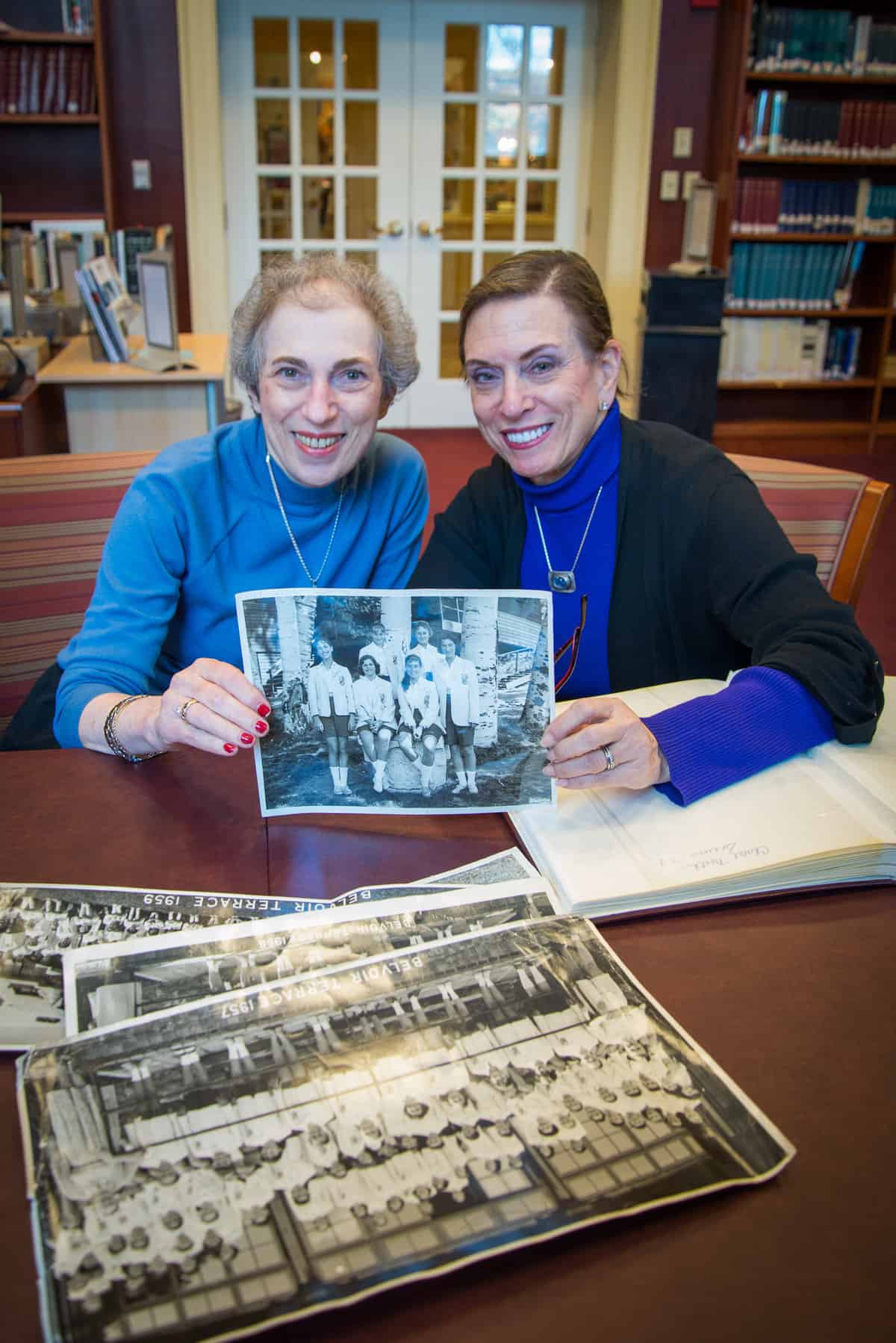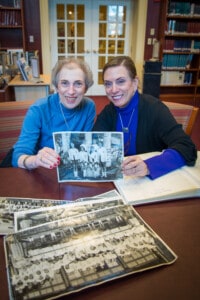Decades have passed since Leslie Legum and Connie Golden first met one another at Belvoir Terrace, a summer camp for girls in Lennox, Mass. But as the two women pore over a treasured trove of faded camp programs, tattered pictures and a 12-page letter Golden wrote Legum one winter when the two were separated, the years melt away and they become the giggling teenagers and bunkmates from those many summers ago.
“Those were the best days of my life, along with the birth of my children and grandchildren,” says Legum. “Connie and I can still tell you the same silly jokes, tell you the names of our best camp friends, and even sing the camp alma mater,” she says, and proceeds to do so.
With a gleam in her eyes, Legum begins reciting the words, then sings the ending: The lasting friendships made here will stay within our hearts, and we will always cherish the love Belvoir imparts. For the longtime Norfolk resident, the words could not be truer.
People either love camp or they don’t, Legum says. For her, spending summer at the small, exclusive arts camp was an unforgettable experience, one that gave her everything that she loves and a lifetime of friendships.
“Oh God, it was so wonderful,” Legum says. “I’d go back tomorrow if I could. That camp gave me friends from another part of the world, and to this day we’re all still friends.”
There was never a doubt that Legum and Golden (and four other girls at camp) would remain friends forever. They’ve vacationed together, visited the camp on whims and for reunions, attended one another’s weddings and have stayed in touch for more than 50 years. “I don’t care what your home life is like,” Golden says. “Your camp friendships and your camp memories are the ones that mean the most.”
So strong was the bond between these two particular camp friends that when Golden and her husband retired—she, a Reform rabbi and he a doctor—they made the decision to move to Norfolk from Philadelphia. They like the community and the weather in the area, but the fact that Legum lives here cinched the deal for Golden.
The pair had roomed together their last year of college—Golden transferred to Boston University where Legum was a student. After college graduation, they lived just blocks apart in Manhattan, and, even when separated geographically by marriages and jobs for several decades, spoke constantly by phone.
Today, they belong to the same synagogue—Ohef Sholom Temple in Norfolk, see each other every Friday night at services, meet at least once a month for lunch, and email each other daily.
What is it about camp that creates lasting friendships like these? With years of contemplation and discussion between them, Golden and Legum feel sure they know the answer.
“I think, that as opposed to school, where you’re on your own during the day and then come home at night…” Golden begins, “…There are certain experiences you have to resolve, decisions you have to make, and you can’t run to mommy to help you,” Legum says, completing Golden’s sentence.
“You’re not in a family setting, where birth order is important,” Legum continues.
“Camp is a place where you are seen as who you are—not the daughter of, or the sister of—you’re allowed to grow as yourself,” Golden says, adding on to Legum’s thought. “You’re allowed to find your real self. You can see it and you can develop it. Part of it is the uninterrupted continuity in that circumstance—the uninterrupted long experience of having to figure things out on your own, finding out who you can confide in and knowing that you’re not alone.”
Legum pipes in, “For better or worse, it’s living together—kind of like being married.”
“I’d still be going if they would take me,” she adds. “So would I,” says Golden.
“So would I.”
by Laine Mednick Rutherford


